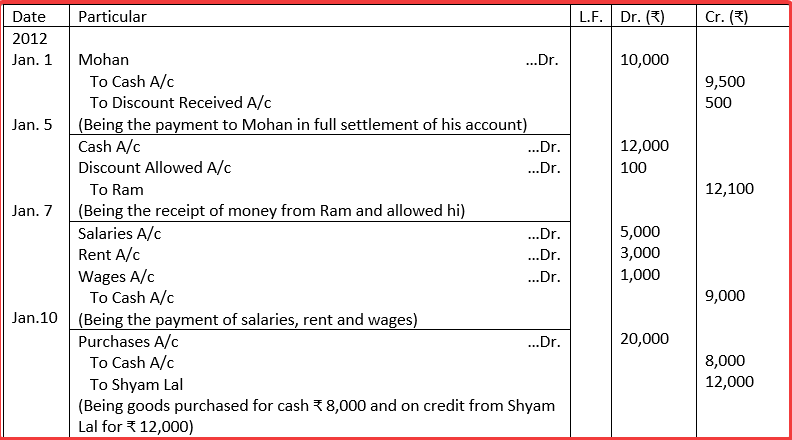Simple and Compound Journal Entries
Entries in a Journal are of two types: 1. Simple Entry and 2. Compound Entry.
1. Simple Entry: A Simple Entry is an entry in which only tow accounts are affected, viz., one account is debited and another is credited with an equal amount. The entries in Illustrations 1 and 2 above are example of Simple Entry.
2. Compound Entry: A Compound Entry is an entry in which two or more accounts are debited and one or more accounts are credited or vice versa. For example, a debt of ₹ 5,000 due from Satish has been discharged by receipt of only ₹ 4,850 cash and by ₹ allowed as discount.
The transaction affects three accounts as follows:

The entry for the transaction is a Compound Entry as follows:

Let us take another example of a Compound Entry. Salaries of ₹ 5,000 and trade expenses of ₹ 3,000 are payable for the year ended 31st March, 2010. These expenses can be recorded in the book of accounts with the following compound entry:

Illustration 3 (Compound Entries). Record the following transactions in a Journal:

Solution:
In the Books of …
JOURNAL




This is very good website for getting the Right Knowledge at one place in the filed of commerce specialized in Account.